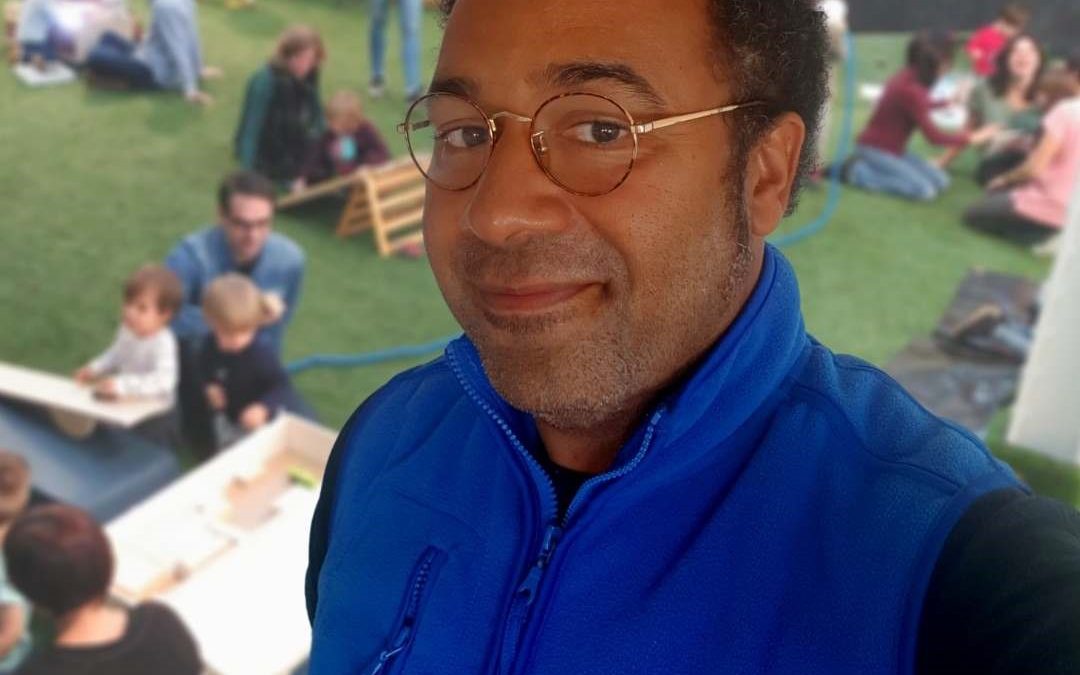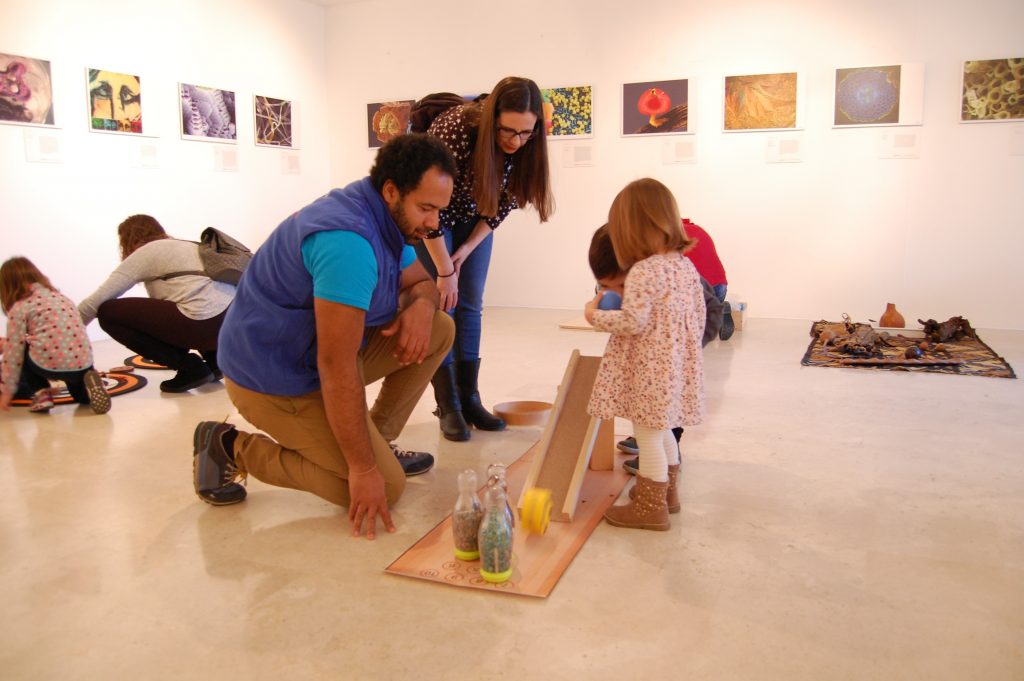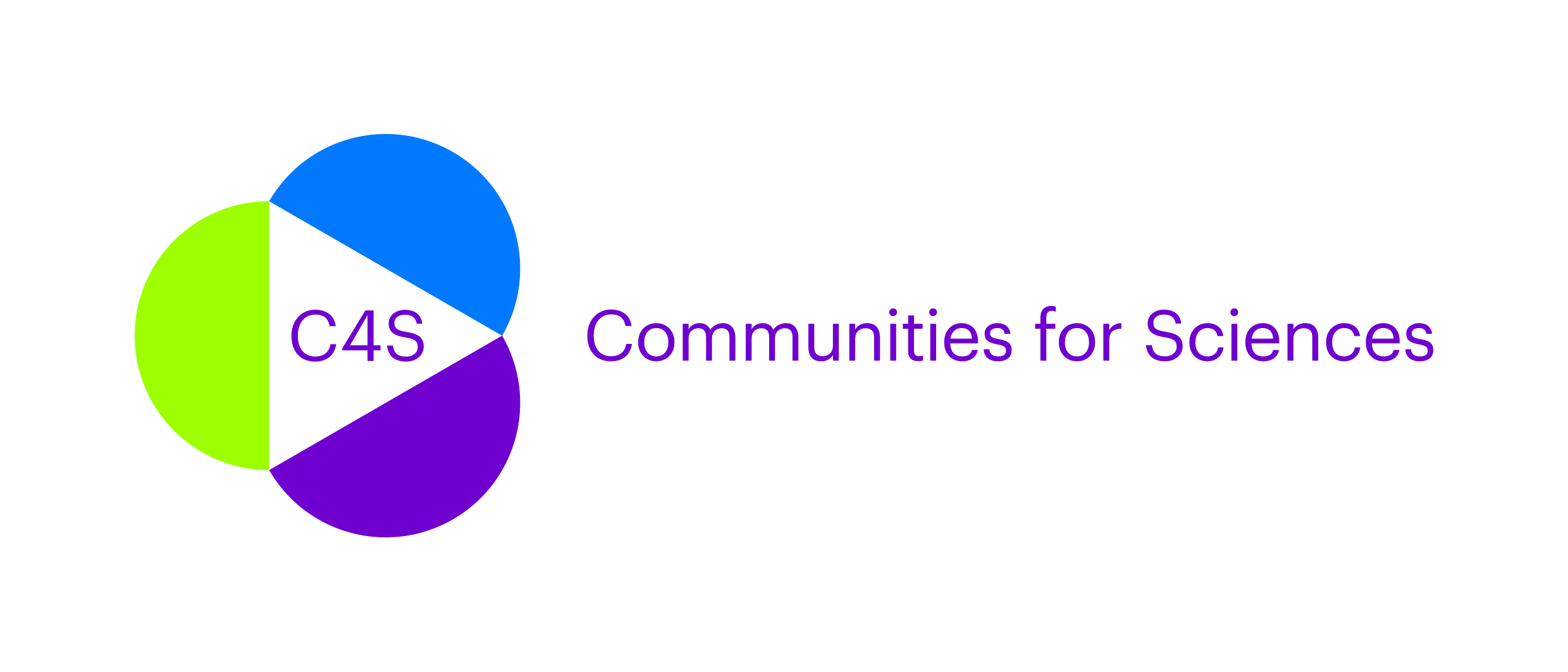
Jerry Tchadie, chemist and science educator, answers some questions to C4S
Jerry Tchadie
has a degree in Chemistry from the Autónoma University of Madrid in 2000 and since then he has always worked in education and popularization of science. He began his career in the Department of Education of the National Museum of Science and Technology (MUNCYT), where he had his first contact with science didactics, the history of science, and museology. Later he had the opportunity to lead the Education Department of the Archaeological Park of Pinto, Arqueopinto. There, he learned the keys of Experimental Archeology.
For the following four years, he worked as a Secondary School teacher at Colegio del Pilar, teaching Technology and as head of the school laboratory. In 2008 he decided to start his own business in the educational sector creating Historiactiva, in association with the history teacher Ignacio Soriano. They aimed to transform the teaching of Social Sciences into a living, experimental, and reflective activity. And they have managed to bring this vision to hundreds of Spanish schools, museums, and cultural spaces, until today.
Historiactiva has allowed him to break down barriers between disciplines. He says that the projects that he has enjoyed the most “are those in which science, arts and humanities were confluent”. All these projects were focused on experimentation and participation. Some of those that he remember most fondly were: Mathematics through African Designs and The Science of Sorolla. Both projects had quite an impact and remained in museum programming for years.
At the same time that Historiactiva started running, he began to collaborate as a regular teacher trainer at the CTIF (Territorial Center for Innovation and Training) of the Community of Madrid. All his courses were focused on the Didactics of Experimental Sciences for Primary School and Early Childhood Education. After many years dedicated to teacher training in the early stages of the educational system, he created his own moveable science space dedicated to Early Childhood Education, named Investigactiva. In its short life, this project has been very well received, and it has allowed thousands of children to experience, share, and enjoy science with their families.

You are the director of Investigactiva, an initiative to promote an active role of children up to 6 years old in science. What is your point of view about making science in early childhood?
I agree with the notion that “Science” is an inseparable part of the human experience. We must continually evaluate our environment and seek survival solutions in an ever-changing world. Understanding our environment and acting on it, is not an academic or curricular option, but a matter of self-preservation. The recent pandemic has highlighted this principle: “Without science, there is no future.” Asking whether science should be a core element in the academic curricula, from early childhood, or not, is not an enlightened society whim, but it is to give to the exploration and understanding of nature the relevance it deserves.
I believe that for this reason an enormous effort is being made worldwide in the development of didactics, materials, and curricula that guarantee the presence of science in schools and the children’s daily life. It has been possible to reach a good consensus about school-science as a planned, collective, and branched process connected with technology and other disciplines. And even STEAM principles or methodologies such as IBSE (Inquiry-Based Science Education) are applied. However, these approaches are usually too abstract or require some communication skills (verbal or written), or a precise manipulation of different materials. All of them out of the reach of the littlest ones. So, is it impossible to do science with children who cannot understand abstract messages, or follow precise instructions, or even build objects? Ten years ago I didn’t think it was possible either. I would say that I became interested in bringing science to early childhood education when I had my firstborn, and I realized that there were no suitable scientific activities for him, either in school or outside of it. During this period of my life, I investigated different pedagogical approaches in nursery schools, such as Montessori, Waldorf, Reggio Emilia, or Pikler. These ways of understanding childhood and education were very revealing and necessary to me, to transfer science to early childhood.
Among other experiences, I visited, in this period, national and international science exhibits oriented to Early Childhood Education. Most of them installed in museums, such as, “El desván de la Ciencia” at the “Parque de las Ciencias de Granada” or The Discovery Room at the American Museum of Natural, and, of course, Lab 06, in the Manresa campus of UVic-UCC, the main resource in this area. I greatly appreciate its transparency and its willingness to communicate and share the results of its research and experiences, Which is so useful for my purpose.
All the experience accumulated in this research process gave me the keys to do actual science with the littlest ones. It wasn’t about making science funnier, more eye-catching, or surprising, it was about tuning in to children’s natural curiosity. As long as we understand science, as a way to explore our environment and not just as a set of magical phenomena, it will be easy to build scientific proposals to encourage the investigative nature, within every child. No flashy garnishes or extravagant conductors are necessary, just pave the way for their natural gameplay to turn it into Science. My experience with Investigactiva shows me how satisfying a science space can be for children, but how surprising and exciting can be for adults, too. Perhaps, this kind of educational activity will be able to engage, not only to children but to the adults who accompany them.
You have worked on a project of ethnographic-maths. Can you tell us about it?
From the beginning of my career, in science education, I was interested in finding a way to connect science education with Africa. Working at the MUNCYT, I was fascinated by the great scientists of non-European origins in Western history, but above all, I was pleasantly surprised to discover that a good part of the Greek scientists had African (Alexandria) origins or had studied in the continent. This fact didn’t seem to be very relevant to my colleges. But it seems to me like a way of linking Africa with the history of science.
In about 2011 I discovered a TED lecture by Dr. Ron Eglash about the connections between mathematics and African designs. The same week I was reading his book “African Fractals”. This quotation still has an echo in my head: ” When Europeans first came to Africa, they considered the architecture very disorganized and thus primitive. It never occurred to them that the Africans might have been using a form of mathematics that they hadn’t even discovered yet. ” Referring to the use of fractal geometry in these cultures.
I was able to pull the thread and complete a bibliography that offered me a whole new perspective. A compendium of mathematical principles implicit in art, social organization, architecture or games, opened before me. Finding the principles of computation in a Yoruba divination system or sets of algorithms associated with Graph theory in a Sona game or all possible symmetry transformations in the plane in a Kuba cloth, was fascinating. So, without delay, I started to create a proposal with didactic materials oriented towards African Ethnomathematics. In 2012, I proposed an interactive activity on Africa and mathematics to the National Museum of Anthropology. It was held during the Madrid Science Week and was called Mathematics Through African Designs. Hundreds of people visited the museum hall that weekend. It was beautiful to presence how other Afro-descendants could finally point their fingers and say with pride: “This is our African Mozart, the mathematics”. I was able to repeat this activity on many occasions and even on national television. Currently, I take it to schools throughout the Community of Madrid through my company Historiactiva.
Do you think that there is a lack of science education in our societies? Do we need a more day to day approach to science?
Of course. We need more education in science and it has to be more present in society’s daily life and be more mediatic. The day children dream of being scientists, politics will include science as one of its main programmatic goals.
I agree that science and technology are being included, more and more, in educational programs. But, I think that leisure science activities could be the key. Non-formal education has the virtue of not being part of a program, so we can choose the content which we are more engaged, and they have a very social side. The After School or weekend STEM activities, science clubs, community science fairs, or science summer camps are the way to enroll the youngest generations in science.
However, almost all of the Spanish cultural leisure focus on cinema, theater, music, exhibitions, and museums. That cultural activity is either highly contemplative or follows a set of instructions in the form of workshops and leave no room for intervention. Science is a perfect tool to learn to be critical and evaluate facts. For this reason, I started Investigactiva, to provide children a space of experience and intervention, from the perspective of science.
Do you think that science education can change societies? Can it make people more critical and empowered?
This is a capital and urgent task, the lack of scientific culture among the population has very harmful effects on our society. Nowadays thousands of fake news are reaching our electronic devices, encouraging our fear and anxieties and making us ignore where the real problems of our society are. A science-educated society is less manipulative and capable of making informed decisions.
Do you think that science is an exclusive field? Have you ever felt that science was something strange to you? As an afro-descendant, have you missed science role models?
Whether or not science is an exclusive sector depends on the strength of the public education system. In my case, I am sure that if Spain had not had a high-quality State Schools and Universities and a good scholarship system, we would not be having this conversation.
On the other hand, to expose my experience as an Afro-descendant during my period as a high school student, I need to explain its context. I spent my adolescence in Madrid in the 90s, and during this decade a strong xenophobic and racist feeling arose in our society, because of the rising number of African immigrants in Spain. Many of my high school classmates tuned in to that xenophobic and racist sentiment, which generated constant conflict. In general, the teachers tried to reduce racist thoughts and give a more humanistic background to students. However, at the same time, we received history, economics, and science lessons that depicted a world in which Africans were underdeveloped, involved in wars and unable to manage their wealth, devoid of technology, and living in wild tribes, in remote places. Placing in our teenager’s heads this narrative: The origin of humanity had started in Africa, where ape-like individuals had evolved into a “white” and European Homo Sapiens.
With these claims, how could I refute the idea of the poor, incapable, and involved Africa? Even the most heroic attempts by teachers to modify the racist and xenophobic thoughts failed. And the most dramatic outcome was that in the deep down inside me, the idea, that this racialized and unfair vision of the world, should be true. This is why it is so important to me to change the narrative and I firmly believe that science can be the fulcrum for a change of perspective. If we could find a history of Africa including science, art, literature, or philosophy as a relevant fact, its descendants and inhabitants could feel empowered and “allowed” to access knowledge.
As a child, my school environment racialized me, so in games or classroom role-playing activities, I was always assigned to roles of “black” characters, such as King Baltasar, Pelé, or Michael Jackson. Likewise, my classmates and teachers attributed me the same virtues and defects as these characters, so they expected that I was a good athlete or dancer. Even today, when I introduce myself to somebody as a professional teacher, more times than I want to admit, It completes my sentence by saying: “ Music teacher? or Physical Education teacher? “. In this context, finding a role-model interested in any academic activity, which others would identify me was impossible. It’s sad, but I often thought I could be more successful if I spent more time playing basketball than thinking about robots, computers, and science fiction.
All these inconveniences that I expose, never stopped my interest in science, but perhaps they did with other people. I think that role-models are relevant to oneself if they are relevant to the rest of society. If my school environment had had more diverse models, no one would have assigned me specific characteristics because I was “black”. We need to make scientists, engineers, artists, and creators from multiple origins, more visible. If we do so, children with non-European origins will feel that they belong to the human race, but also children with European origins won’t lose sight of the humanity they belong to.
